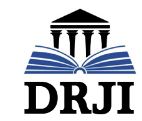THE CONSTITUTIONALITY OF THE ESTABLISHMENT OF THE LAW ON THE INSTITUTION OF THE PEOPLE'S CONSULTATIVE ASSEMBLY (MPR) OF THE REPUBLIC OF INDONESIA AS A FORM OF MANIFESTATION OF ARTICLE 2 PARAGRAPH (1) OF THE 1945 CONSTITUTION OF THE REPUBLIC OF INDONESIA
Abstract
This study discusses two main problems: first, constitutional values in the institutional arrangements of People's Consultative Assembly of the Republic of Indonesia (MPR RI) based on the 1945 Constitution of the Republic of Indonesia in the development of legislation in Indonesia; second, the urgency of the establishment of the MPR RI Institutional Law as an implementation of Article 2 paragraph (1) of the 1945 Constitution of the Republic of Indonesia. The article states that "The People's Consultative Assembly consists of members of the People's Representative Council and the Regional Representative Council who are elected through general elections and further regulated by law." Therefore, a special law is needed to regulate the MPR, as also explained in the appendix to Law Number 12 of 2011. However, until now, the MPR institution is still regulated together with the House of Representatives (DPR), the Regional Representative Board (DPD), and the Regional House of Representatives (DPRD) in Law Number 2 of 2018 (UUMD3), which has the potential to cause confusion because the four institutions have different positions, functions, and authorities. This study uses a normative legal method with a descriptive analytical approach that is perspective in nature to provide solutions to the problems of state institutional arrangements in Indonesia. The results of the study show that based on Article 2 paragraph (1) of The 1945 Constitution of the Republic of Indonesia post- amendment, a special law is needed regarding the MPR institution. The regulation of the MPR in one joint legal product with DPR, DPD, and DPRD not only creates ambiguity in society, but also contradicts the characteristics of each institution from a historical, philosophical, sociological, and legal perspective. Therefore, it is necessary to establish a separate MPR Institutional Law from the UUMD3.
Keywords
Full Text:
PDFReferences
The 1945 Constitution of the Republic of Indonesia
Law Number 2 of 2018 concerning amendments to Law Number 17 of 2014 concerning the People's Consultative Assembly, the House of Representatives, the House of Regional Representatives and the Regional Representatives Council
Regulation of the People's Consultative Assembly of the Republic of Indonesia Number 1 of 2014 concerning the Rules of Procedure of the People's Consultative Assembly
Ataniari Siahaan, Political Law of Law Formation after the Amendment of the 1945 Constitution, Konpress, Jakarta, Cet. 1, 2012
Bambang Sugono, Legal Research Methods, Jakarta Raja Grafindo Persada, 2011 Haerani, Policy on the Establishment of a Separate MPR Law, article in Assembly
Journal, Edition 08, 2017
Heru Susetyo, Constitutional Reform from the Aspect of State Institutions, article in Indonesian Litigation Journal, Vol. 7 No. 1, 2007
Jimly Asshidiqie, Introduction to the Science of Constitutional Law, Rajagrafindo Persada, Jakarta, 2014.
Kuntana Magnar, Position, Duties, Functions and Authorities of State Institutions in Indonesia, article in Journal of Litigation Law, vol. 1 No. 2 Th. 2007
Lexi J Moleong, Qualitative Research Methods, Bandung: Remaja Rosada Karya, 2005 Makmur Amir and Reni Dwi Purnomosari, People's Representative Institution,
Center for HTN Studies FH UI, 2006
Novianto M. Hantoro, Juridical Study of the Formation of the Law on the House of Representatives of the Republic of Indonesia, Article in the Journal of State of Law, Vol. 3, No, December 2012
Nurul Chotidjah, Dynamics of the Implementation of the Authority of the Supreme Court and the Judicial Commission after the Amendment of the 1945 Constitution, Article in Litigation Journal of Legal Science, Vol. IX No. 3, 2008
Guide to the Correction of the 1945 Constitution of the Republic of Indonesia, in the Order of Chapters, Articles, Paragraphs, Jakarta: Setjen MPR, 2007
Soerjono Soekanto, Introduction to Legal Research, Jakarta: UI Press, 1986
Soerjono Soekanto and Sri Mamudji, Normative Legal Research A Brief Review, 8th cet, Jakarta: PT RajaGrafindo Persada, 2004
Soehino, State Law, Techniques of Legislation, Yogyakarta, Liberty, 1990
Sri Soemantri Martosoewignjo, Indonesian Constitution, Remaja Rosdakarya, Bandung, 2016
Titik Wulan Tutik, Construction of Indonesian Constitutional Law after the Amendment of the 1945 Constitution", Kencana Prenada Media Group, Jakarta, 2010
Titik Wulan Tutik, Analysis of the Position and Legal Status of MPR RI Decrees Based on Law Number 12/2011 on the Formation of Legislation, Article in Law Journal, Vol, 20 No. 1, January 2013
Usep Ranawidjaja, Indonesian Constitutional Law Basics, Jakarta: Ghalia Indonesia,
Yahya Ahmad Zein, Constitutional Obligation to Establish a Separate Act of the
People's Consultative Assembly of the Republic of Indonesia, article in Assembly Journal, Edition 08, 2017
DOI: https://doi.org/10.46576/ijsseh.v6i2.7321
Article Metrics
Abstract view : 317 timesPDF – 123 times
Refbacks
- There are currently no refbacks.
Copyright (c) 2025 Restu Gusti Monitasari

This work is licensed under a Creative Commons Attribution-NonCommercial-ShareAlike 4.0 International License.
Dharmawangsa International Journal Indexed by:
Member Of :
Dharmawangsa: International Journal of the Social Sciences, Education and Humanitis Published By:
UNIVERSITAS DHARMAWANGSA
Alamat : Jl. K. L. Yos Sudarso No. 224 Medan
Kontak : Tel. 061 6635682 - 6613783 Fax. 061 6615190
Email : dharmawangsajournal@dharmawangsa.ac.id
Dharmawangsa:International Journal of the Social Sciences, Education and Humanitis by Universitas Dharmawangsa Medan is licensed under a Creative Commons Attribution-NonCommercial-ShareAlike 4.0 International License.
Based on a work at: https://jurnal.dharmawangsa.ac.id/index.php/dharmawangsa/index

11.jpg)
















